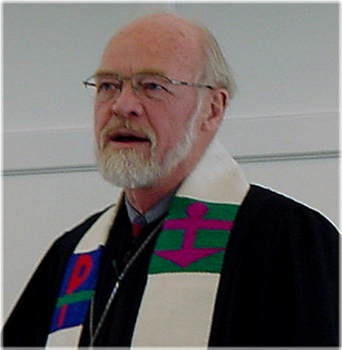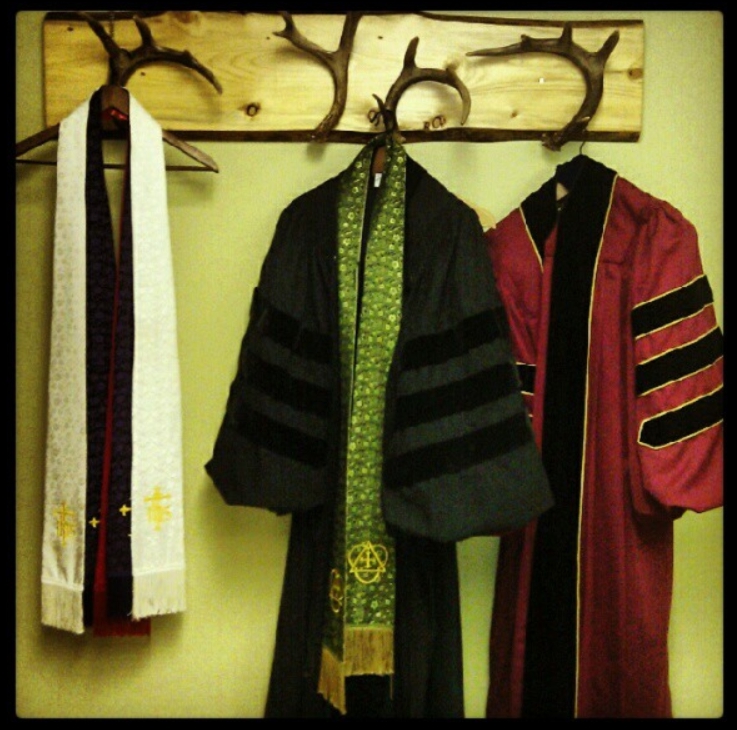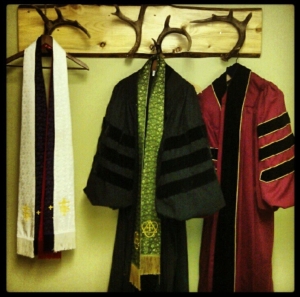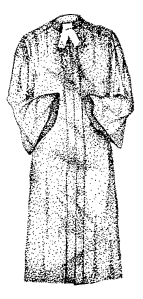Some people wonder why I wear a robe in morning worship. This excerpt from a Christianity Today interview with Eugene Peterson conveys one of the primary reasons for doing so.
CT: What if we were to frame this not in terms of needs but relevance? Many Christians hope to speak to generation X or Y or postmoderns, or some subgroup, like cowboys or bikers—people for whom the typical church seems irrelevant.
PETERSON: When you start tailoring the gospel to the culture, whether it’s a youth culture, a generation culture or
any other kind of culture, you have taken the guts out of the gospel. The gospel of Jesus Christ is not the kingdom of this world. It’s a different kingdom.
My son Eric organized a new church six years ago. The Presbyterians have kind of a boot camp for new church pastors where you learn what you’re supposed to do. So Eric went. One of the teachers there said he shouldn’t put on a robe and a stole: “You get out there and you meet this generation where they are.”

Eugene Peterson
So Eric, being a good student and wanting to please his peers, didn’t wear a robe. His church started meeting in a high-school auditorium. He started out by wearing a business suit every Sunday. But when the first Sunday of Advent rolled around, and they were going to have Communion, he told me, “Dad, I just couldn’t do it. So I put my robe on.”
Their neighbors, Joel and his wife, attended his church. Joel was the stereotype of the person the new church development was designed for—suburban, middle management, never been to church, totally secular. Eric figured he was coming because they were neighbors, or because he liked him. After that Advent service, he asked Joel what he thought of his wearing a robe.
He said, “It made an impression. My wife and I talked about it. I think what we’re really looking for is sacred space. We both think we found it.”
I think relevance is a crock. I don’t think people care a whole lot about what kind of music you have or how you shape the service. They want a place where God is taken seriously, where they’re taken seriously, where there is no manipulation of their emotions or their consumer needs.
Why did we get captured by this advertising, publicity mindset? I think it’s destroying our church.




